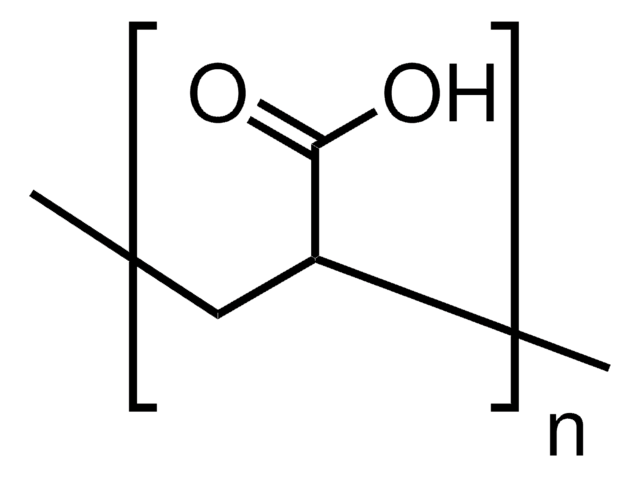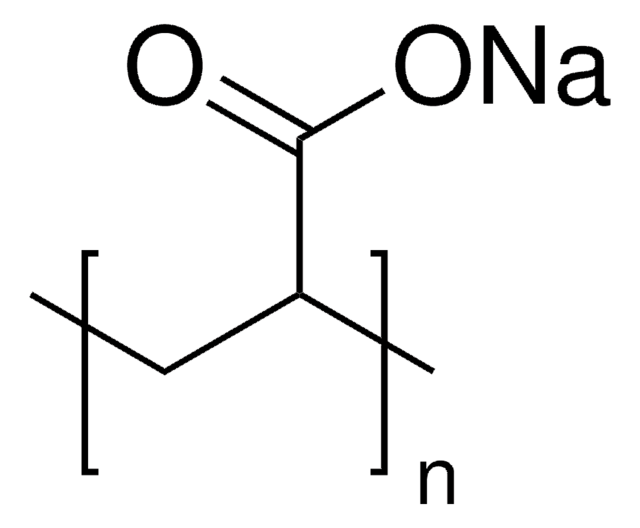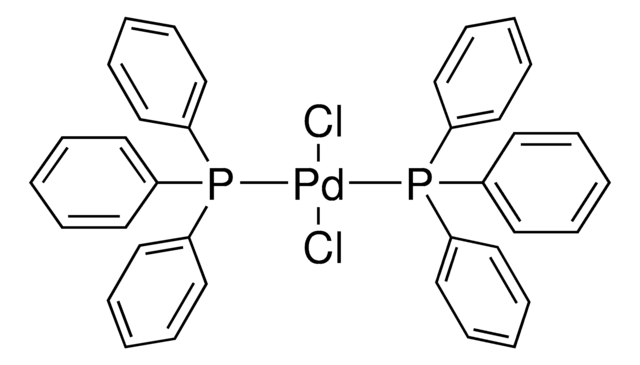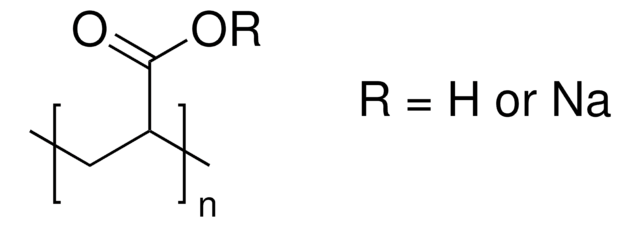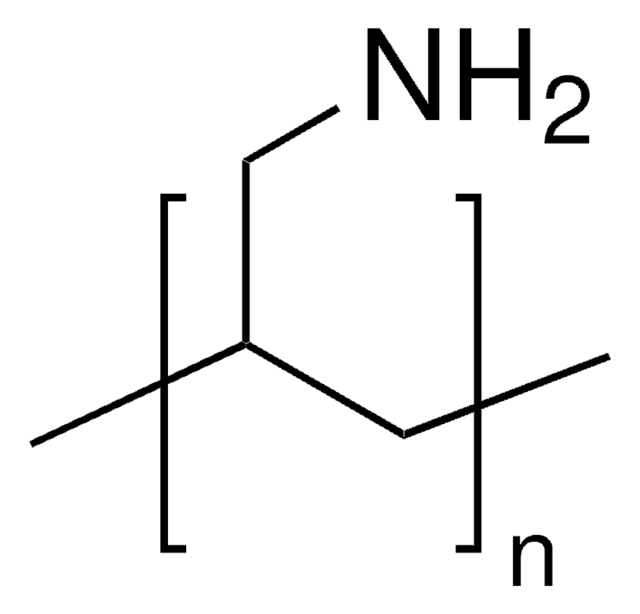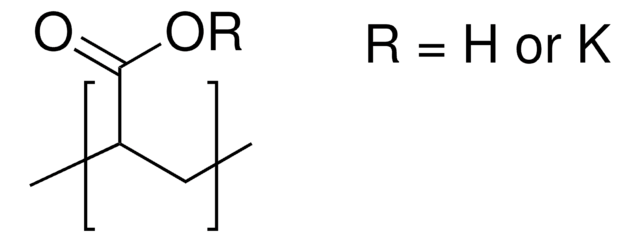416002
Poly(acrylic acid) solution
average Mw ~250,000, 35 wt. % in H2O
Synonym(s):
PAA
About This Item
Recommended Products
form
viscous liquid
Quality Level
mol wt
average Mw ~250,000
concentration
35 wt. % in H2O
refractive index
n20/D 1.395
density
1.150 g/mL at 25 °C
SMILES string
OC(=O)C=C
InChI
1S/C3H4O2.Na/c1-2-3(4)5;/h2H,1H2,(H,4,5);/q;+1/p-1
InChI key
NNMHYFLPFNGQFZ-UHFFFAOYSA-M
Looking for similar products? Visit Product Comparison Guide
Related Categories
General description
Application
Signal Word
Danger
Hazard Statements
Precautionary Statements
Hazard Classifications
Aquatic Acute 1 - Aquatic Chronic 2 - Eye Dam. 1 - STOT SE 3
Target Organs
Respiratory system
Storage Class Code
10 - Combustible liquids
WGK
WGK 1
Flash Point(F)
212.0 °F - closed cup
Flash Point(C)
100 °C - closed cup
Personal Protective Equipment
Choose from one of the most recent versions:
Already Own This Product?
Find documentation for the products that you have recently purchased in the Document Library.
Customers Also Viewed
Articles
Magnetic-plasmonic nanoparticles offer the combined benefits of both a magnetic probe as well as additional imaging modes usually associated with noble metal nanoparticles. Professor Shinya Maenosono (Japan Advanced Institute of Science and Technology) explores the synthesis, characterization, and proof-of-concept application of Ag/FeCo/Ag core/shell/shell magnetic-plasmonic nanobeads for imaging and isolation of cellular organelles (autophagosomes of COS-1 cells).
Our team of scientists has experience in all areas of research including Life Science, Material Science, Chemical Synthesis, Chromatography, Analytical and many others.
Contact Technical Service